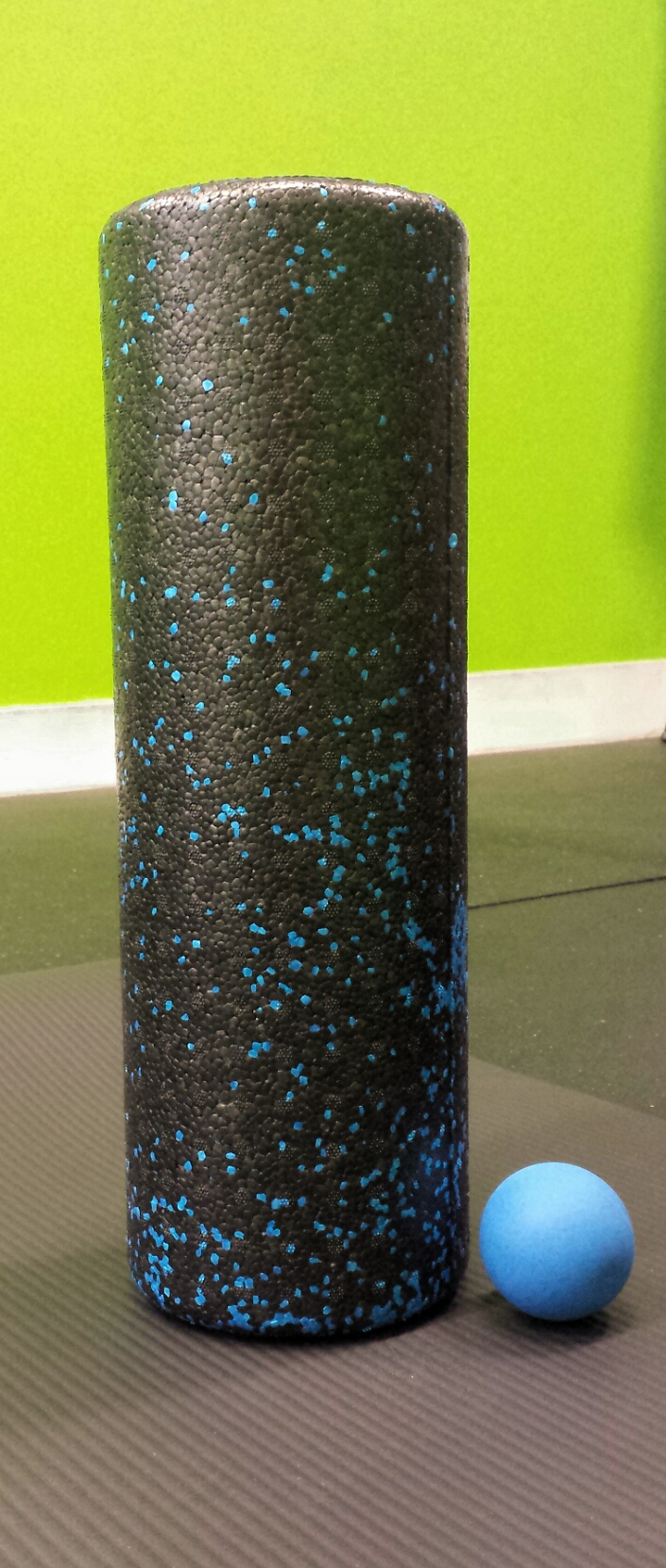I like to treat myself to a massage three times a week, and not just an absent-minded shoulder rub. I’m talking about a deep tissue, muscle relaxing, performance-enhancing massage. Sounds heavenly, right? Where do I find the time and resources to indulgence myself like that? I’ll share my secret with you…This is self-massage and it’s free with a foam roller. This is such an easy way to treat our bodies right, not only with extra TLC but potentially by promoting healing and recovery.
What is foam rolling and how does it help?
Using a foam roller, or for more precise targeting, a lacrosse ball, apply low pressure by rolling in a long smooth motion across different muscle groups. This action massages the fibrous layer of connective tissue (the myofascial tissue) that surrounds the muscles. By massaging this tissue and smoothing out any knots and binding, we increase blood flow which helps with recovery and increases range of motion.
When should I foam roll?
In a perfect world, foam roll before and after each work out. I like to hit the tight spots coming into a workout. My top three restricted areas are my calves, quads, and upper back. Even with a standing desk, I find my ankles could use a little more mobility after a day at the office. I’ll get a fine looking squat with a little more movement in my joints. So many movements in my daily life are quad dominant so they get knotted up easily and affect my hip flexor mobility and lower back. Sometimes I use the heel of my hand or a lacrosse ball on my legs before a workout if I don’t have time for a full foam roll session. The upper back, or thoracic spine, likes a little attention after hours of phone calls, meetings, and desk fatigue. Even with good posture awareness, this area gets stuck from the occasional slouch or hunch. If I have the roller handy, a nice long roll over my upper back with my neck cradled safely in my hands, I feel all the day’s tension fall away- like water off a duck’s back.
After a workout hit all these spots again and add a nice long roll on the IT band down the side of your leg. For me, with a tricky knee, so much tension builds there and the massage of that tissue makes me a better person. Complete the roll out with the hamstrings, glutes, and lower back.
How long should it take?
For a pre-workout roll, take about 5 minutes, and spend up to 15 minutes as part of a cool down. Roll at a pace of about 1 inch per second, or slower. If you hit a very tender spot, try rolling the area around that first to avoid doing any damage. A little discomfort is normal, but severe pain is not what we are going for here.
Beginner tips:
If you are new to rolling, start slowly. Ask your trainer for instructions and to check that you are hitting the sweet spots. Be sure not to aggravate anything that is already inflamed. Find a way to incorporate this into your training during a dynamic warm-up or a cooldown, or both. Take your time with it, and breathe.
Indulgence
Remember this is your indulgence. Your deep tissue massage. Digging deeper into a painful area can cause tissue or nerve damage, so steer clear of the “no pain, no gain” mentality. If you listen to your muscles and the myofascial tissue surrounding them, you want to hear them take a little breath and then sigh out a sweet, “Thank you for taking care of me.”
